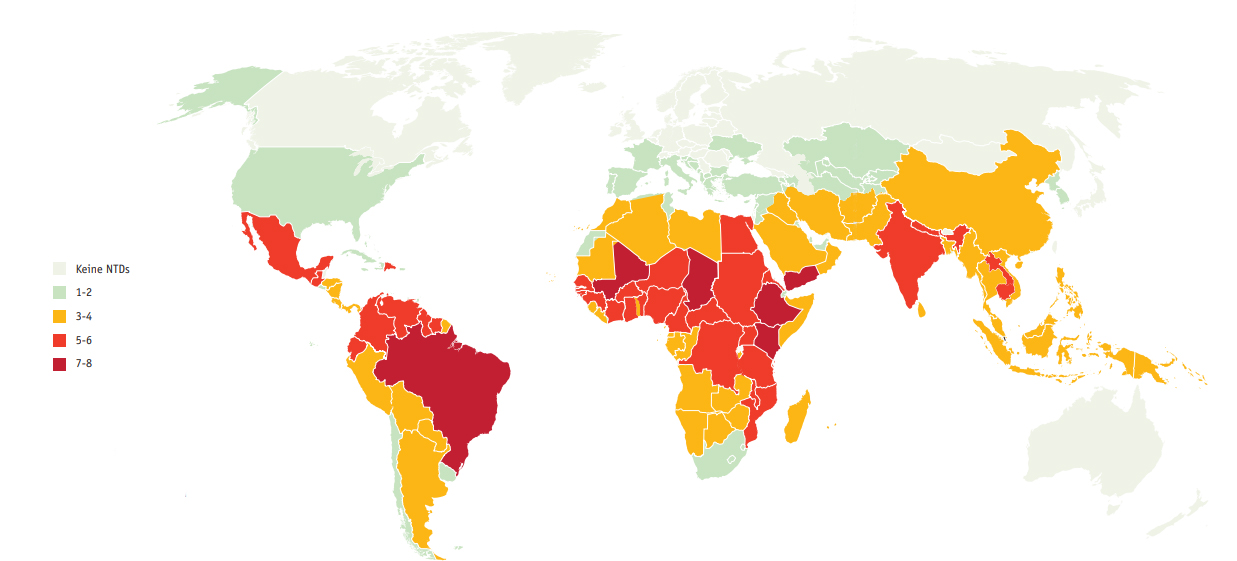World NTD Day 2023: Snack & Talk about NTDs
Neglected tropical diseases (NTDs) occur mainly in resource-poor regions of the Global South. They particularly affect the poorest part of the population in already poor countries. These people usually have no access to adequate medical care, clean drinking water and sufficient alimentation.
NTDs are caused by bacteria, viruses or parasites. The diseases usually do not lead directly to death, but are often a great burden for those affected, their relatives and subsequently also for the economic situation in the affected countries. NTDs are therefore an important obstacle to sustainable development in these countries.


The World Health Organisation (WHO) currently lists 20 neglected tropical diseases. These include worm diseases such as schistosomiasis or river blindness, diseases caused by single-cell parasites such as sleeping sickness or leishmaniasis, bacterial infections such as leprosy and diseases caused by viruses such as dengue fever or rabies. Poisoning from snakebites is also included. Sometimes travellers are also affected after their return.
On the occasion of World NTD Day 2023, the BNITM invites you to a talk event in the Erika-Haus on the premises of the University Medical Center Hamburg-Eppendor (UKE). There will be a panel discussion with our experts, a photo exhibition and more. Afterwards, you will have the opportunity to talk to the panelists and scientists over a snack.
Key facts
Contact person
Jana Hey
Department of Infectious Disease Epidemiology
Email : jana.hey@bnitm.de
Pia Rausche
Department of Infectious Disease Epidemiology
Email : pia.rausche@bnitm.de
Further information







